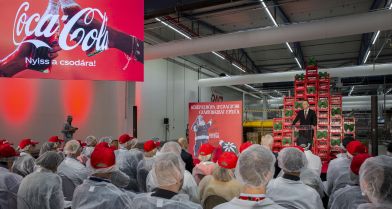
The region’s most modern vegetable oil processing plant to be built in Foktő - VIDEO REPORT
2020. 09. 07.

The foundation stone has been laid for the newest production plant of Pannon Növényolajgyártó, a member of the Glencore Agriculture group in Foktő. The crushing facility, which was opened in 2012 will now be enlarged with a unit for further refining through this investment of EUR 66.3 million. Products will leave the plant at a higher level of processing, thus enabling higher added value and creating 40 new jobs in Hungary.
Glencore is one of the largest industrial raw material and commodity suppliers in the world. Glencore Agriculture is a global market leader in the purchase, handling, processing and marketing of agricultural products and commodities, giving work to over 13,000 employees in 35 countries worldwide.
As part of Glencore Agriculture's Hungarian group, which comprises 3 member organisations, Pannon Növényolajgyártó operates one of the largest vegetable oil plants in Central Europe in Foktő, processing sunflower seed, rape seed, soybean and corn germ with the application of cutting-edge technologies.
The current investment will result in the establishment of a unit for further processing, making it into one of the most modern edible oil refinery plants in Central Europe, with almost unrivalled capacity in the region. With this, the produced raw oil will be refined in 50% on site, which will not only contribute to higher added value in local production, but also reduce the environmental pressures from transportation. The process includes multiple stages of filtering and cleaning, through which residual particles and other contaminations are removed from the raw oil. Through drying, the resulting by-products can become a further source of useful commodities, such as lecithin, which is an important commodity in the pharmaceutical, cosmetics and food industry. It is remarkable that no by-product generated during the process will be left unused.



